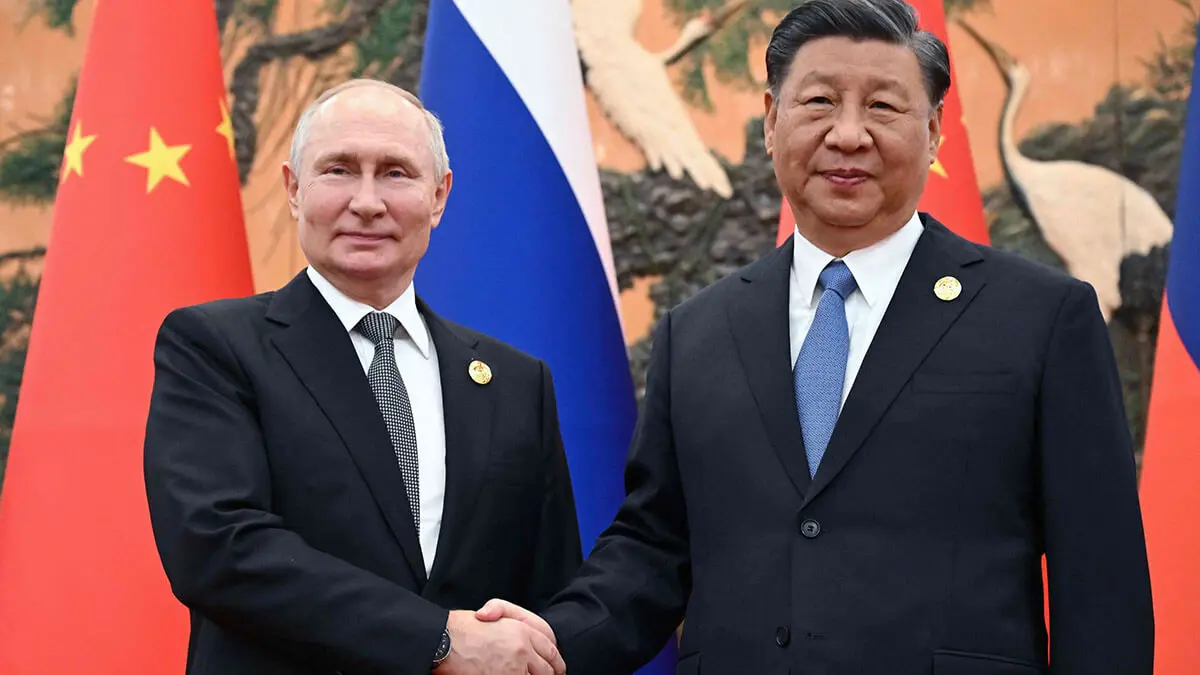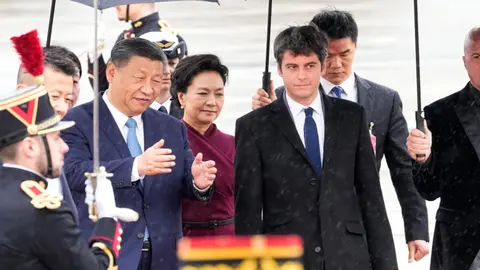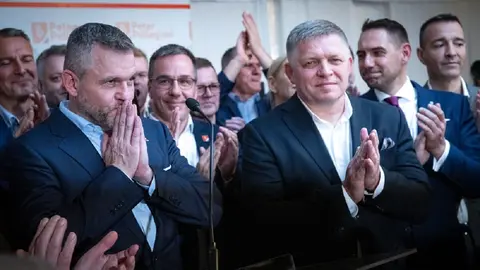Without Russia and China, peace in Ukraine will not be possible

Around 100 of the world's top leaders, many of them European, will be present, as well as US Vice-President Kamala Harris, who is standing in for President Joe Biden, who is busy in southern Italy at another crucial meeting, the G7. Both Italy and Switzerland will be attended by Volodimir Zelenski, the Ukrainian president, who believes that the first foundations can be laid for a peace programme to end the long war unleashed by the Russian invasion decreed by Vladimir Putin.
However, among the many illustrious names who will be meeting in the green Swiss mountains, neither the Russians nor the Chinese are present, in other words, two actors who are as important as they are unavoidable if a more or less definitive solution is to be found to the first major conflict suffered by Europe since the Second World War, the second if one counts the war that disintegrated Yugoslavia and for whose solution the United States was once again called upon to act and achieve what Europe was incapable of achieving.
With neither the Russians nor the Chinese at the table in Switzerland, Ukraine aspires to get a common plan signed by the hundred or so heads of state and government from virtually every continent, in the belief that such backing would be hard for Moscow and Beijing to refuse. Such is at least the conviction of Andriy Yermak, the head of the Kiev Presidential Administration, a key element of this Peace Conference.
If a more or less unanimously accepted document emerges in Switzerland, Ukraine hopes that Russia will join a second conference, where the practical aspects of the road map for peace will supposedly be discussed.
For now, however, this is far from being the case. To begin with, and almost simultaneously, the G-7 in Italy may agree definitively to use Russian assets abroad to finance the reconstruction of Ukraine, an operation whose costs range from 600 billion to a trillion euros, not counting the immense personal and moral damage inflicted on the courageous Ukrainian people. Such a provision has already been pre-emptively disqualified by Moscow, which could increase its anger if new sanctions are imposed on it, which have so far been largely mitigated thanks to the help of China, whose favour has brought Beijing the enormous benefit of meeting its oil needs at half the market price, given Russia's imperative need to provide an outlet for its main export item.
The aforementioned Andriy Yermak believes that previous attempts at mediation, through bilateral formats with the major European and American leaders trying to pressure Putin, have not worked, so that this new multilateral and almost universal attempt is at least worth a try.
What is certain is that, although Russia may have modified its objectives in Ukraine, it does not appear that it is going to give up the most important thing, namely the consolidation of its dominance and permanence in the conquered territories of eastern and southern Ukraine, and it might even be added that it is not giving up the objective of taking over the important port city of Odessa, once it has been established that British drones launched from there can wreak havoc on the Russian Black Sea fleet.
Other no less important simultaneous diplomatic moves are also worth noting. For example, NATO Secretary General Jens Stoltenberg's visit to Hungary, whose leader Viktor Orban is increasingly critical of the Alliance's increasing military aid to Ukraine. Given Orban's stubbornness, it is not out of the question to offer him a kind of ‘right of withdrawal’ from the organisation or at least from its major decisions, especially the one on long-term assistance to Ukraine.
Hungary, that thorn in the EU's and NATO's side, also opposes the outgoing Dutch Prime Minister Mark Rutte as the next Secretary General of NATO, which has already been virtually agreed by all. Instead, Budapest is proposing Romanian President Klaus Iohannis, whom the US is putting pressure on to step down.
The agenda of issues to be discussed in Switzerland is nevertheless of the utmost importance, not only for Ukraine but also for its EU neighbours and beyond: nuclear safety, food security, the release of prisoners of war and the return of Ukrainian children abducted by Russia.



